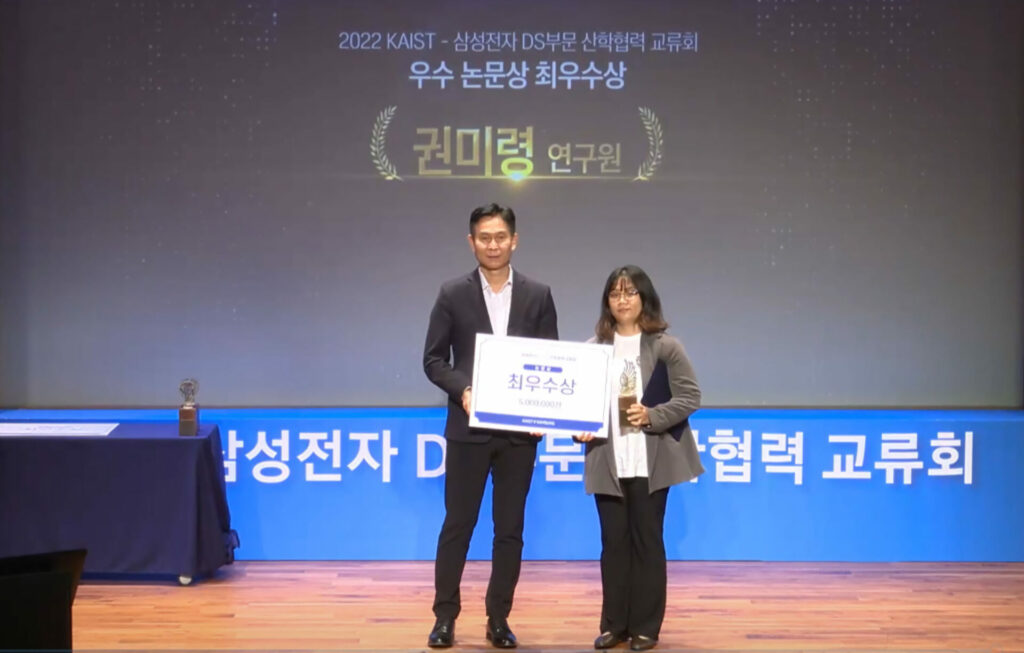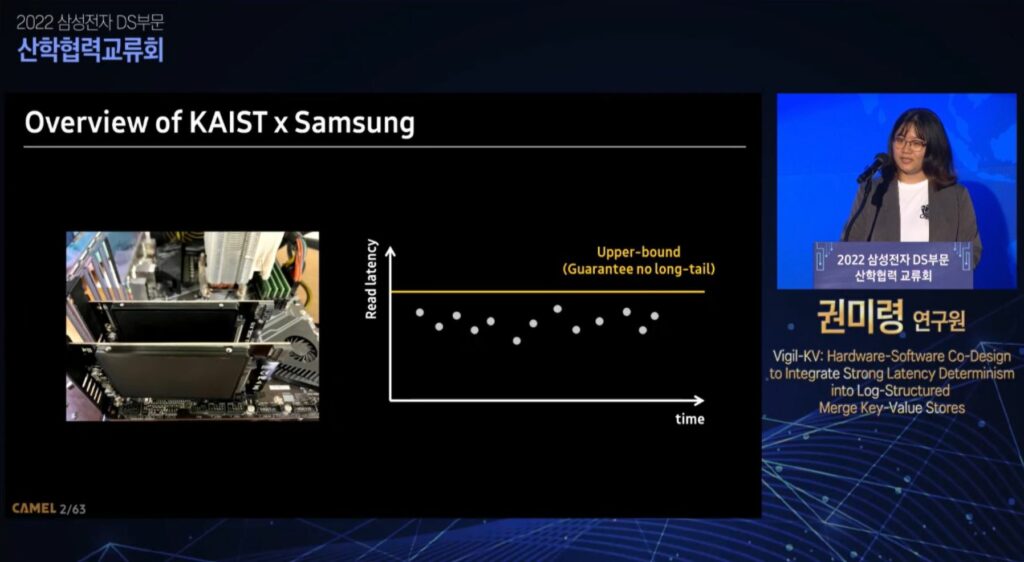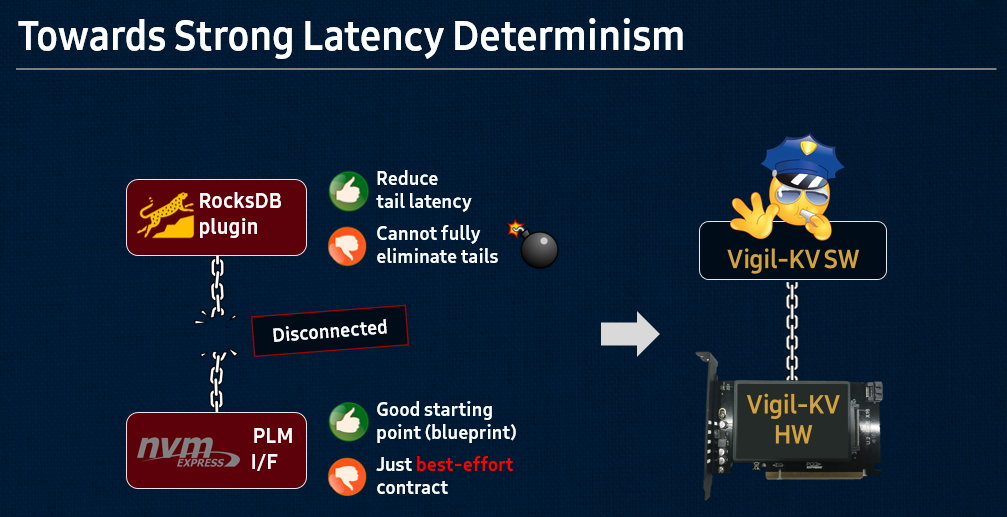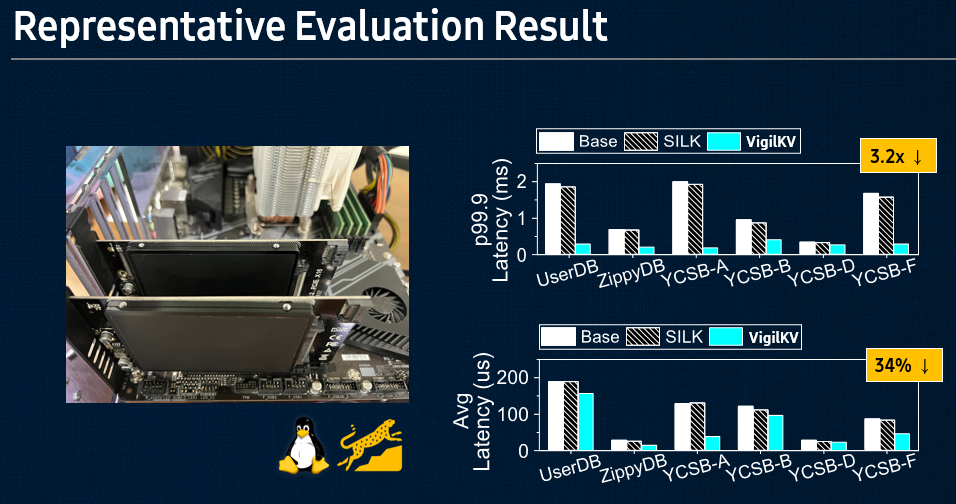
[Prof. Myoungsoo Jung, Miryeong Kwon, Seungjun Lee, and Hyunkyu Cho from left]
Our department’s Professor Myoungsoo Jung’s research team has developed the world’s first Predictable Latency Mode (PLM) SSD based hardware and software co-designed framework for Log-Structured Merge Key-Value Stores (LSM KV store).
The research team has developed the ‘hardware and software co-designed framework for LSM KV store, Vigil-KV’ that eliminates long-tail latency by utilizing the Predictable Latency Mode (PLM) interface, which provides constant read latency, to the actual datacenter-scale SSD. Vigil-KV outpoerforms 3.19x faster tail latency and 34% faster average latency compared to the existing LSM KV store.
LSM KV store, a kind of database, is used to manage various application data, and it must process the user requests within the requirement time in order not to degrade the user experience. To this end, Vigil-KV enables a predictable latency mode (PLM) interface on an actual datacenter-scale NVMe SSD (PLM SSD), which guarantees constant read latency in deterministic mode related to read service without performing SSD’s internal tasks.
Specifically, Vigil-KV hardware makes the deterministic mode SSDs exist in the system to remove SSD’s internal tasks by configuring PLM SSD RAID. In addition, Vigil-KV software prevents the deterministic mode from being released by LSM KV store’s internal tasks, scheduling LSM KV store operations (e.x., compaction/flush operations) and client requests.
Among the proposed research results, especially noteworthy is that Vigil-KV is the first work that implements the PLM interface in a real SSD and makes the read latency of LSM KV store deterministic in a hardware-software co-design manner. They prototype Vigil-KV hardware on a 1.92TB datacenter-scale NVMe SSD while implementing Vigil-KV software using Linux 4.19.91 and RocksDB 6.23.0.
The KAIST Ph.D. Candidates (Miryeong Kwon, Seungjun Lee, and Hyunkyu Choi) participate in this research, and the paper (Vigil-KV: Hardware-Software Co-Design to Integrate Strong Latency Determinism into Log-Structured Merge Key-Value Stores) was reported in July, 11th at ‘USENIX Annual Technical Conference, ATC, 2022’. In addition, they has won the Best Paper Award from Samsung for this paper (Vigil-KV) with Professor Jae-Hyeok Choi’s research team.
The Best Paper Award from Samsung recognizes master’s and doctorate students that participated in research grant projects and published papers related to the project among papers adopted by foreign journals/conferences since September 21st. This year’s awards consisted of grand award (2 people), excellence award (1 person), and encouragement award (2 people).
The research was supported by Samsung. More information on this paper can be found at http://camelab.org.




